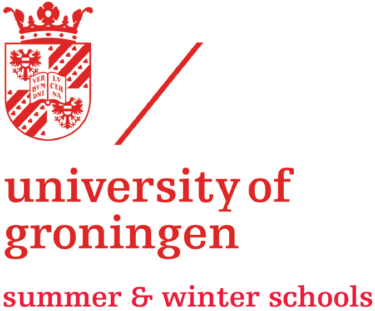
Lugano, Switzerland
Doctoral School in Theoretical Foundations and Theory-Building: Performativity and post-humanist traditions (ANT, STS)
When:
08 September - 18 September 2025
Credits:
3 EC
Read more
Social Sciences Summer Course
When:
23 June - 28 June 2025
School:
University of Groningen Summer Schools
Institution:
University of Groningen
City:
Country:
Language:
English
Credits:
4 EC
Fee:
375 EUR


Polycrises - multiple, interconnected crises that interact and amplify one another - have become a defining feature of contemporary societies. These crises span various domains, from demographic shifts like aging populations to socio-economic instability and environmental disruptions. Addressing them effectively requires a robust analytical framework that moves beyond disciplinary silos and single-cause explanations.
While it is widely acknowledged that crises have multiple causes and consequences and must be studied from diverse disciplinary perspectives, these efforts often lack a common overarching analytical framework. Without such a framework, developing effective policies and interventions remains a challenge.
The SuRe Summer School bridges this gap by providing a structured approach based on social mechanism reasoning, a core principle behind Realist Evaluation’s context-mechanism-outcome (CMO) framework, which currently informs much evidence-based policymaking.
Key Crises Addressed by SuRe
The summer school focuses on three interrelated crises:
- Demographic Crisis: Aging populations and their impact on social cohesion, labor markets, and welfare systems.
- Socio-Economic Crisis: The relationship between economic instability, inequality, and societal adaptability.
- Environmental Crisis: The rising frequency of natural disasters and their cascading effects on governance and social structures.
Analytical Focus and Objectives of SuRe
A comprehensive understanding of crises requires two essential skills: deep contextual knowledge about crises and the drivers and threats of resilience at and between multiple levels — micro (individuals), meso (organizations, communities, families), and macro (societies); and a rigorous analytical tool to dissect their underlying societal and behavioral processes. SuRe brings together leading scholars and domain experts from sociology, history, demography, economics, psychology and organization science, fostering an interdisciplinary learning environment that equips participants with both.
By the end of the program, participants will have developed a solid foundation in social mechanism reasoning and CMO-based Realist Evaluation, enabling them to apply these insights to real-world crises. This knowledge will empower them to contribute to more sustainable and resilient societies through theoretically grounded and empirically informed interventions.
The summer school will be held at the Royal Netherlands Institute in Rome (KNIR), which also provides shared accommodation for participants. Renown social resilience scholars from demography, history, sociology, economics and organization science introduce key topics and will work with participants on subprojects.
Prof. Dr. Rafael Wittek (Sociology, Behavioral and Social Sciences)Dr. Francesca Giardini (Sociology, Behavioral and Social Sciences)
This school is aimed at:
- excellent REMA students
- Postgraduate students: PhD – post doc students
- Other external stakeholders: national and local policy-makers
It is expected that the participants have a sufficient command of the English language to actively participate in the discussions and to present their own work in English.
After this Summer School, participants will be able to:
Understand and explain the principles of social mechanism reasoning as a tool for analyzing polycrises.
Apply social mechanism reasoning to real-world case studies, identifying the key mechanisms driving resilience and vulnerability in demographic, socio-economic, and environmental crises.
Analyze and compare competing social mechanism explanations for crisis dynamics, assessing their implications for policy and intervention design.
Evaluate the role of behavioral microfoundations—such as cognitive biases, social norms, and emotional responses—in shaping resilience at individual, organizational, and societal levels.
Design interdisciplinary research proposals or policy recommendations that integrate insights from sociology, history, demography, economics, and psychology to address interconnected crises.
Workload
- Preparation (including reading, ca. 200 pages; time spent on preparation depends on the participant’s background): max. 70 hours
- Contact hours (class and online activities): 25 hours
- Group projects: 17 hours
Upon successful completion of the programme, the Summer School offers a Certificate of Attendance that mentions the workload of 112 hours (28 hours corresponds to 1 ECTS). Students can apply for recognition of these credits to the relevant authorities in their home institutions, therefore the final decision on awarding credits is at the discretion of their home institutions. We will be happy to provide any necessary information that might be requested in addition to the certificate of attendance.
Fee
375 EUR, for non UG students, € 275 for RUG and Enlight
Fee
550 EUR, Practitioners
When:
23 June - 28 June 2025
School:
University of Groningen Summer Schools
Institution:
University of Groningen
Language:
English
Credits:
4 EC

Lugano, Switzerland
When:
08 September - 18 September 2025
Credits:
3 EC
Read more

Utrecht, Netherlands
When:
11 August - 21 August 2025
Credits:
4 EC
Read more

Amsterdam, Netherlands
When:
05 July - 19 July 2025
Credits:
0 EC
Read more